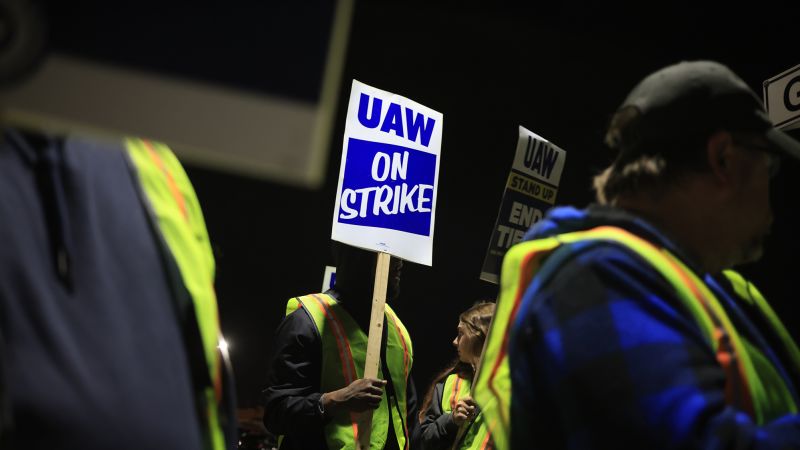A growing number of rank-and-file autoworkers are voting against the deals with General Motors and Ford, despite pay increases that could come to 30% or more during the life of the contract.
The latest major setback for the deals came among Ford workers in Louisville, Kentucky, home to the company’s largest and most lucrative factories, and a GM truck factory in Flint, Michigan, a city known as the birthplace of the union.
The Ford vote in Kentucky showed 55% of the members at the Kentucky Truck plant voting against the deal. That plant went on strike with little notice on October 12, about three weeks into the strike that targeted specific plants at the company. Members at Ford’s nearby Louisville Assembly plant who belong to the same union local voted 53% in favor of the deal.
While the ratification vote at both companies still has the support of the majority of members, neither vote is large enough at this point to assure passage, especially with some large union locals yet to weigh in. A vote tracker on the UAW site shows that 65% of members at Ford who have voted so far approve of the deal. But that’s down from the more than 70% who had voted yes heading into the weekend. The GM vote is much closer with only 57% voting to ratify so far, and three other locations joining the Flint Truck plant in voting no.
A “no” vote at either company could lead to a resumption of the strike, perhaps with little notice. But it wouldn’t be unique, as there have been several instances in which the rank-and-file have voted against deals negotiated by their union and endorsed by its leadership.
The UAW members at Mack Truck voted down a tentative agreement with that heavy truck maker on October 8, and have been on strike ever since, although they are in the process of voting on a slightly different version of that rejected deal once again.
UAW President Shawn Fain has told members repeatedly that these are record contracts and wins for the members, and that the union negotiators won every last dime the companies had to offer. But he also has said the final decision on what to do is up to the rank-and-file.
While the deals give an immediate 11% pay raise to members, guaranteed wage increases totaling another 14% over the next four years and a cost-of-living adjustment that could bring wages up to more than 30% when combined with the guaranteed wages, it did not meet all of the union’s negotiating demands at the start of talks.
The union began demanding an immediate 20% raise and raises totaling 40% during the life of the contract. And it wanted a return of traditional pension plans for workers hired after 2007, who have only a 401(K) plan for their retirement, and health care coverage for retirees and their families.
When Fain and other union officials were spelling out the deals reached with the three companies on Facebook Live, comments that appeared on the feed showed many members urging other members to vote no on the deals.
Some members voicing complaints online argued that the deal didn’t do enough to help the more senior employees who had been with the companies since before 2007. Others complained about the lack of health care coverage for retirees, especially since many members retire from production jobs before they’re eligible for Medicare. And some just urged members to vote no without giving a reason.
Results are due in at other Ford locals by the the end of the this week, including the large local that represents numerous plants in the same complex in Dearborn Michigan. The votes at GM and Stellantis are likely to stretch into next week.
So far the vote at Stellantis has overwhelming support, with 82% of the members who have voted supporting the deal. So far, the only unit of the union at Stellantis to vote no is the one that represents about 300 workers at a parts distribution center in Marysville, Michigan, about an hour north of Detroit.
Read the full article here








